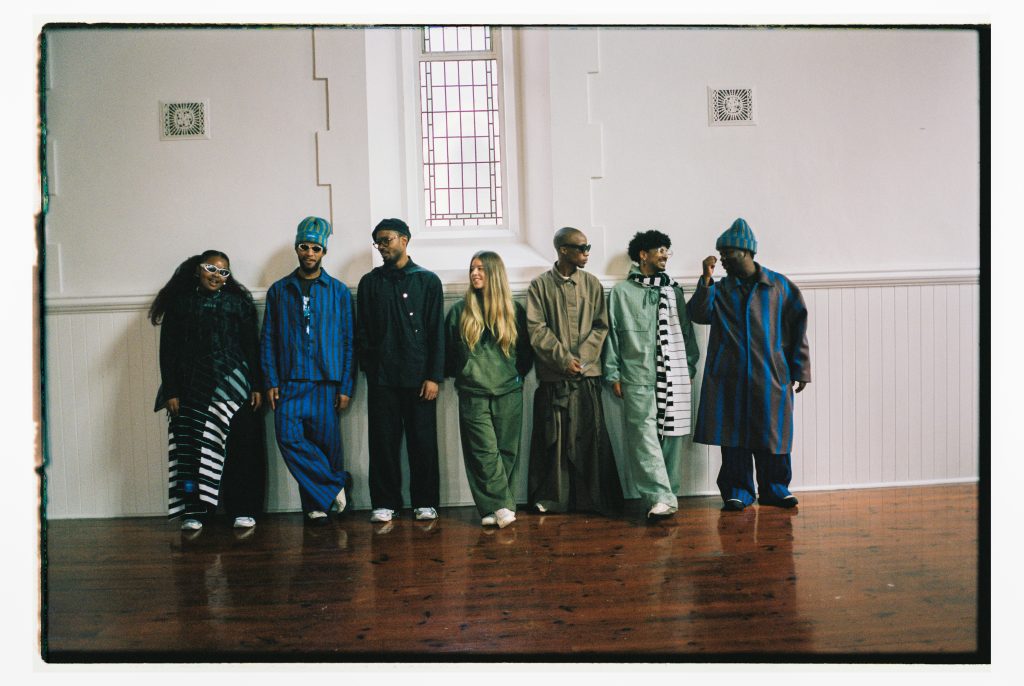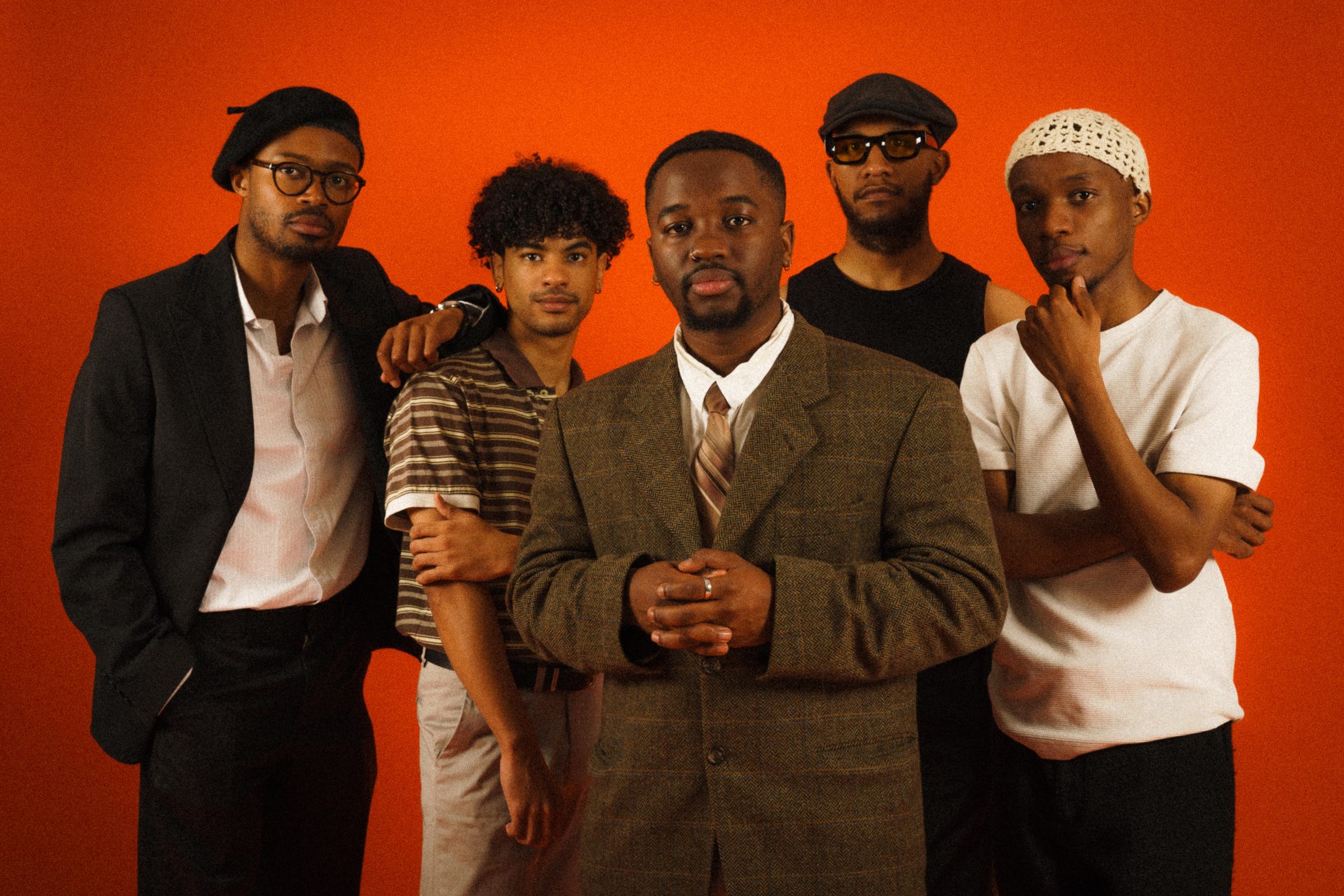In recent years, many musicians and fans have questioned whether jazz still carries the same political charge it once did. For Cape Town’s seven-piece collective Kujenga, those tensions pulse beneath every note of their new EP, Common Ground, a record that insists jazz — or what they call “Black Improvised Music” — still carries a responsibility to the times we live in.
The declining urgency
“I don’t think the political urgency connected to that period has been entirely carried into the current scene in a real significant way,” bassist Zwide Ndwandwe tells us. “Even though the conditions which necessitated the music of that time are still present.”
Zwide speaks of a wider problem: how capitalism and decades of neoliberalism have diluted the radical edge of Black art. “Capital has often rendered art forms which were created by the oppressed into something more consumer-friendly, slowly ridding it of its political edge,” he says. “Outcomes like these […] gradually remove the sociopolitical context formerly associated with this music out of the frame.”
It’s an old story with new stakes. In South Africa, jazz once rang out as resistance — from Abdullah Ibrahim’s Mannenberg to the township sessions that defied apartheid curfews. Today, the commercial live circuit has absorbed much of that energy, and while the music remains rich and exploratory, its revolutionary roots often sit in the margins. Kujenga are conscious of that lineage, and of the many contemporary musicians across South Africa and beyond who continue to hold that political line — artists who inspire them as part of a broader continuum rather than a revival. The same pattern repeats globally: from the commodification of hip-hop to the global sanitising of Afrobeat into “Afrobeats” — genres born of struggle, repackaged for export.
Building a sonic home in a city of exclusion
“We need to consider our reality here in Cape Town,” says the band’s trumpeter, Bonga Mosola. “We’re all witnessing the housing crisis in and around the city […] people being forcibly removed from their homes in Observatory, the rampant homelessness all over the city and the City choosing to disallow people from building makeshift housing in unsightly regions like next to the castle,” which he believes is only fixing the issue cosmetically rather than addressing the core of it. “All of this is just a symptom of a system founded on the logic of capital, dispossession, exclusion and settler colonialism — the same principles against which this music was born.”
For Kujenga, those conditions make the political role of their art self-evident. “Modern jazz should be a continuation of the tradition of building a sonic home for those who were stripped of the right to a home,” Bonga continues. “Is modern jazz always that? No. Can it be? We definitely think so — and aim to do just that.”
Beyond jazz: Black Improvised Music
Kujenga resists being boxed into a single genre. “We don’t believe the traditional and experimental jazz are opposing forces,” says the group’s keyboardist and vocalist, Owethu Ndwandwe. “We rather refer to our sound as ‘Black Improvised Music’ […] to highlight that it’s not about the sound, but about the message and context, which for us is the Black experience in an anti-Black world.”
Bonga echoes this: “We just call our music [jazz] because it’s easier to understand. But a better label would simply be ‘Black Music’. Our intention is authentic expression within the tradition of Black music — and to us that requires the authentic expression of the Black experience in the modern age.”
Finding Common Ground
Their latest 5-track EP, Common Ground, which dropped on 7 October 2025, captures that philosophy. “It’s a different era of the band,” Owethu explains. “We’ve been inspired by styles and sounds from other parts of the continent, and we were hoping to express a Pan-Africanist vision of uniting each country with a collective goal.”
Recorded live in one day, in a church hall — “no smokescreen, overdubbing or editing, just raw Kujenga,” as electric guitarist Thane Smith recalls, the EP embraces imperfection as truth. Collaborators from Concept Records and Artclub & Friends helped realise the project, which feels both communal and intimate. “Finding common ground is easier said than done,” Thane says, “but it’s an important process of learning, understanding, and showing love, even when it’s difficult.” He hopes the music inspires connection and closeness, reminding us that we’re not alone in our experiences and emotions.

For drummer Keno Carelse, that collectivity is what sustains them: “There are seven opinions at all times, there are seven voices waiting to be heard and seven moving parts, each with its own function, that make up the mechanism which is Kujenga — but always with respect at the core.”
Retaining music’s political soul
Kujenga’s approach offers a quiet counter to the hyper-commercialised music economy. Collective over individual. Improvisation over polish. Purpose over product. In doing so, they remind us that the radical spirit of Black music need not be shouted to be urgent — it can be felt in how artists choose to listen, build, and create together.
As Bonga puts it, “authentic expression within the tradition of Black music […] requires the authentic expression of the Black experience in the modern age.”
Common Ground is exactly that: a reminder that beauty and urgency can coexist — and that the political work of sound is far from finished.



